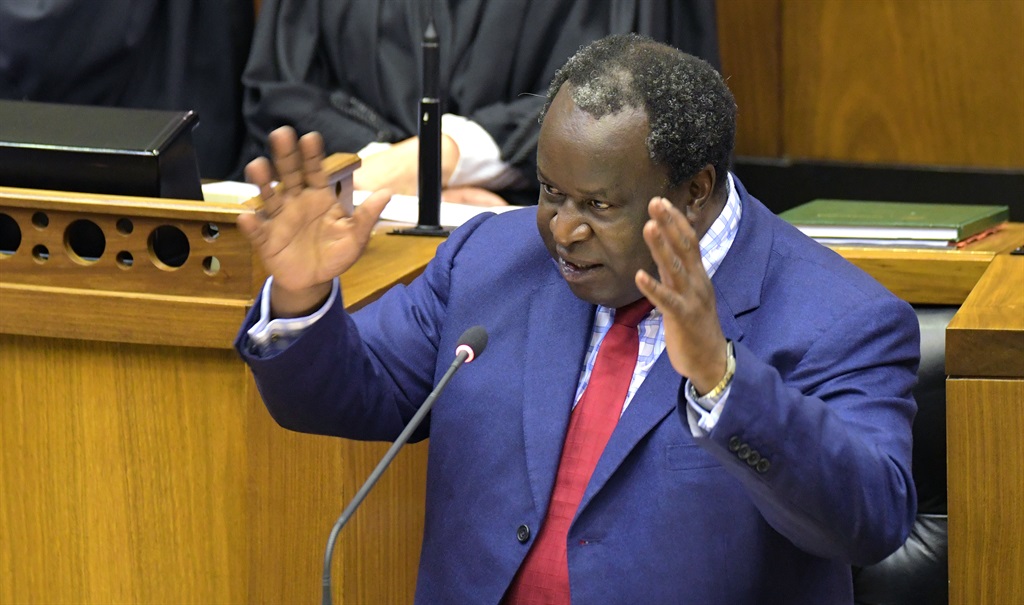
South Africa has two options for raising capital for investment; ether we borrow from the past, which is called savings, or we borrow from the future, which is called debt.
The power of the former is that the productivity required to raise the saved capital has already occurred; meaning the cost of capital is limited largely by demand in the financial markets.
Borrowing from the future is a whole other ball game, with additional risks – the possibility that the productivity required to repay the debt will not be forthcoming, and that the debt will turn bad.
This causes the cost of the capital to spiral upwards and eventually lead to the need for bailouts, and a loss of national sovereignty.
This is the basic reason why South Africa needs economic growth.
Given our low national savings rates, we have no option but to borrow against future productivity in order to invest – borrow from the next generation of South Africans, banking on the hope that they will be productive.
As our national costs soar and inflation ticks up, we need economic growth to cover not only our current costs, but finance the repayment of our debts.
Failure to do so, pushes the nation into a low-growth debt-trap, from which it is extremely difficult to return.
In a healthy economic environment, recurring costs such as public sector wages or social transfers are paid using revenue from productivity and debt is used conservatively, to invest in long-term enablers for further growth.
In an unhealthy environment, debts are raised to pay ongoing costs, leaving no borrowing capacity for critical investments in infrastructure for instance.
In an even worse scenario, debts are used to cover for losses from cronyism, corruption and mismanagement – plugging the holes in the dam wall caused by predatory elites who capture institutions for personal gain.
Against this backdrop, Budget 2019 is a lame duck for SA Inc.
The minister has had to do a difficult balancing act between the political goals, of slightly increasing social support for the poor through social grants and paying for “free” education, and the fiscal conservatism needed to protect South Africa from a growing debt burden.
Far from putting in the knife to reduce costs, the minister has laid out a buffet of social expenditure, allocating R386.4 billion and R222.6 billion to social services and health respectively, an additional R208.5 billion and R278.4 billion to community development and social development.
That is R1 trillion of social expenditure, compared to a mere R206.2 billion for economic development, which is less than a quarter of the amount spent for social services.
On the back of this, consider that our sovereign debt is projected to grow by an additional R243 billion to afford these services.
With weak economic growth projected to continue, and a stubborn budget deficit, the debt burden will rise to 62% of GDP – largely paying for the past sins of poor education, poor health services and poor social infrastructure, often referred to as the legacies of apartheid.
This leaves the minister very little fiscal space in which to manoeuvre.
He has rightly raised sin taxes, and spoken of freezing the public sector wages bill, but this does not address the underlying structural problem of weak growth.
Economic growth will not return in a meaningful way until after the general elections in May, when the private sector and investment community feel more secure about the country’s political risk.
The minister’s plan for the legislatures to receive no salary increase is positive, but constitutes a drop in the bucket and is only symbolic.
VIP protection for public servants and other wasteful expenditures remain unchanged including additional “bail outs” for state-owned enterprises that simply prolong their slow death due to their failing and outdated business models.
With frail, hollowed out industrial institutions such as Eskom and bailouts and borrowings increasing at SAA, Moody’s and other ratings agencies will remain worried about the country’s future ability to service our debt.
While the minister did not increase income tax or VAT, the consumer will remain under pressure and carry the can in the long term through a weakening currency and food inflation.
The only way out of the low-growth debt-trap SA Inc. is now firmly in, is a combination of rapid economic growth, combined with public sector spending cuts that will allow government investment in fixed asset formation in the real economy.
This will require political leadership to make the case that we cannot borrow ourselves out of historic disadvantage, nor can we finance our socioeconomic emancipation on the backs of the small tax base that currently fits the bill for government revenues.
• Marius Oosthuizen is based at the Gordon Institute of Business Science (GIBS) Faculty, Futurist




 Publications
Publications
 Partners
Partners








